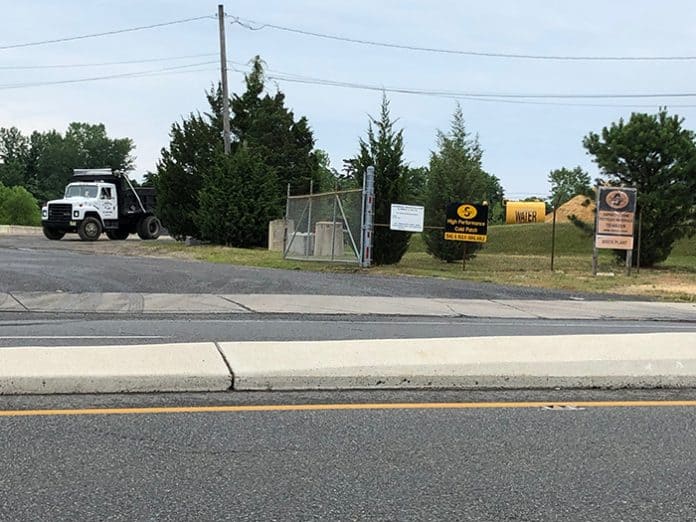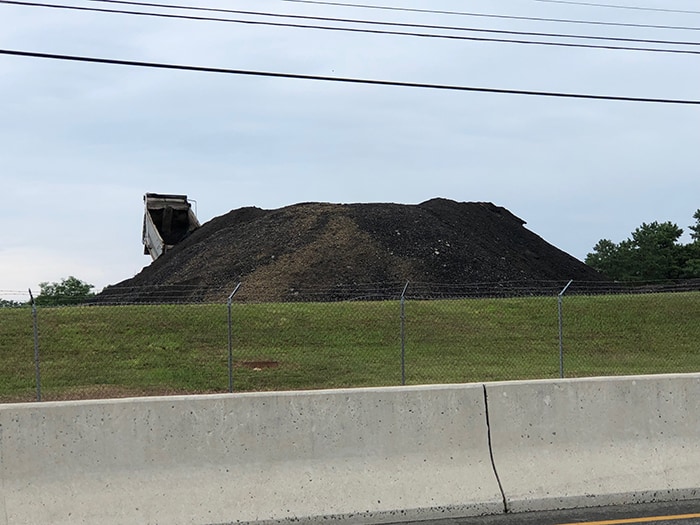
BRICK – Stavola Industries, which operates an asphalt plant on Chambers Bridge Road near a Garden State Parkway overpass, has submitted an application to the township Board of Adjustment to expand its asphalt manufacturing operations there.
The Brick Township Municipal Utilities Authority (BTMUA) has objected to the application because of the plant’s proximity to the Metedeconk River and to the water intake of their water treatment plant, located less than a half mile away.
This is the second time Stavola Industries has filed an application before the Board of Adjustment. In 2004, the asphalt plant applied for variances to demolish most of the existing structures on the plant site and replace them with more modern facilities capable of producing asphalt at twice the current rate.
According to legal documents obtained from the Superior Court of New Jersey Appellate Division, Stavola also sought to add four 50.5-foot silos for storing up to 600 tons of asphalt and to implement asphalt recycling capabilities.
The first application went before the Superior Court after the application was denied by the Brick Township Board of Adjustment for multiple reasons, including the possibility of contaminants entering the Metedeconk River and the air.
The Superior Court upheld the Board’s decision, finding “sufficient evidence to support the Board’s determination” and the “heightened degree of concern” regarding the drinking water supply in the nearby Metedeconk River.
“Based on our review by experts, the issues and concerns [in the new application] are concerning and are still valid,” said BTMUA Executive Director Chris A. Theodos in a recent phone interview.
“Our consultants have evaluated the application and we have serious concerns about the potential impacts to the quality of the water, that we believe are significant,” he said.

A BTMUA press release states that any release of pollutants into the air or ground at the asphalt plant site would likely find their way into the Metedeconk River by either directly entering the river or entering the groundwater which makes up most of the river flow.
The U.S. Environmental Protection Agency found that carcinogens and Hazardous Air Pollutants (HAPs) are known to exist in emissions from asphalt plants, said the press release.
Also, any floods, fires or explosions at the plant could render the river unusable for drinking water supply for extended periods, it said.
Stavola has operated the plant since 2001 where there is a two-and-one-half-ton hot mix “batch” asphalt plant capable of producing a 2.5-ton batch of asphalt each minute, or 150 tons per hour.
There is also stockpiles of stone and sand onsite, a 15,000-gallon horizontal liquid oil storage tank, a 10,000 gallon fuel storage tank and some structures.
The plant is located in an R-R-1 Rural Residential zone, which does not allow asphalt production facilities. Stavola was “grandfathered in” because it was built prior to the establishment of the zoning ordinance.
BTMUA Vice Chairman Thomas Curtis called a review of Stavola Industries compliance history on the NJDEP’s Open Public Records Act “concerning.”
The website shows numerous environmental compliance violations at its various asphalt plant facilities, including the Brick plant, due to inadequate operations and maintenance of systems and failure to comply with permits.
Stavola Industries, Inc. did not respond to several requests for comment.
There is not yet a date planned for Stavola’s application before the Board of Adjustment, an official said.






